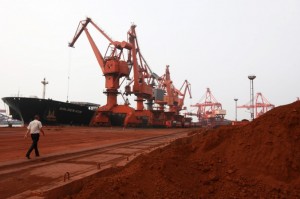The Epoch Times’s Matthew Robertson takes a closer look at the Pentagon’s request to Congress “for over a billion dollars. To buy rocks” – at a time when budget cuts should be the order of the day in Washington.
He notes that while in previous years, the Department of Defense merely noted China’s near-total monopoly on global REE supply and production, in this year’s report to the House Armed Services Committee, the agency strikes a more urgent tone and looks to stockpiling as a means to “hedge” the supply risk associated with being at the mercy of China.
In his piece, Robertson frequently cites American Resources principal Daniel McGroarty, who invokes Adam Smith’s reflection on dependence on foreign resources that “it might not always be prudent to depend upon our neighbors for the supply.” The materials Smith referred to were certainly different at the time – sailcloth and gunpowder – but their strategic relevance at the time is comparable to the relevance of REEs today.
Outlining the various scenarios drawn up by the DoD report, Robertson closes by explaining how the “sometimes haphazard and fragmented nature of how rare earths are obtained from China” complicate the assessment:
“Complicating the assessment is the sometimes haphazard and fragmented nature of how rare earths are obtained from China: in the south of the country, tens of thousands of metric tonnes of rare earths are thought to be wrung from the ground, and refined and exported, by a chaotic chain of fly-by-night mining operators — none of those figures go into the official books. Estimates for that illicit activity range from 10,000 to 40,000 metric tonnes per year.”
At the height of its production, Molycorp, a U.S.-based miner of rare earth elements that was hit hard by China’s rock-bottom prices, says it planned to produce 20,000 metric tonnes of product in 2012. This means the underground Chinese supply component could be as much as double the entire U.S. supply, which goes some way to illustrating the opaque and potentially volatile nature of Chinese supply.
“Think about how nervous that would make a Pentagon planner,” McGroarty says.
Quite a bit, seems to be the answer – and, for good reason, considering the fact that the United States once again ranks worst when it comes to mining permitting delays (an indicator of the time it takes to bring a new mine online) in a renowned annual ranking released by mining advisory firm Behre Dolbear.





